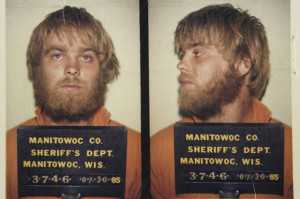Impoverished Politics: Making a corrupted “Justice” System

Over the holiday break the Netflix-binging world was taken by storm by the new documentary series “Making a Murderer.” The series is a ten-part show that follows the story of Steven Avery and his family as he is convicted and tried for the murder of Teresa Halbach, a young woman from Wisconsin.
Without getting into many details that might spoil the show for those who have yet to watch, Avery was convicted of a violent rape in 1985 and served 18 years in prison before DNA evidence later exonerated him.
After his release, and his filing of a lawsuit against Manitowoc County, Wisconsin for $36 million in attempt for reparations to him and his family, Avery is arrested along with his nephew for involvement in the grisly murder of Teresa Halbach.
It becomes clear through the length of the show that whether Avery was actually guilty or not, the county, the police and the judges involved with his and his 16 year old nephew’s cases were not interested in fair trials. The two men were often denied their Constitutionally-expected rights and at times it seemed that evidence may have been planted to ensure a verdict of guilty.
I will not debate the guilt of the accused here, but this series has done something miraculous: it has illuminated for many Americans the fact that the justice system is often not just at all. Since the show went live on Netflix, thousands if outraged viewers have created and signed petitions for the release of Avery, who is currently serving life in prison, and his nephew Brendan Dassey who will not be up for parole until he is at least 59 years old.
The average American home is now flooded with evidence that the State does not always serve to protect, that the police often search for a confession instead of the truth and that politics play a huge role in the meaning of justice.
These truths are especially poignant in the era of Black Lives Matter and heightened awareness of police brutality. It does say something that people seem outraged only after realizing these injustices can occur to working class white males such as Avery, while people of color and members of the queer community often go unheard by white America when they cry out against an unjust system, if not blatantly shut down.
But now that we are aware of these broken and scheming entities, what are we, the people, to do? How can we hope to reform an agency so bloated and rotted? It is seldom that something so irreversibly damaged can ever be transformed and repaired, so in the case of the American justice system only abolishment can truly free our country from its ever tightening grasp.
Our nation’s incarceration rate has exploded in recent years, so much so that America’s prisoner population makes up 25% of the world’s entire incarcerated population. This costs the government billions of dollars every year, and the people who are locked up are often there because of things like race, income, mental health, gender identity and so on.
They are subjected to torture and harassment at the hands of the guards, and are denied many of the basic rights non-incarcerated people may take for granted. For instance, after release and even being expunged of all crimes, a former federal prisoner will never be able to vote in either federal or state elections.
That means for the rest of their lives, hundreds of thousands of Americans are denied the ability to engage in democracy. The prison system’s goal is to dehumanize criminals as much as possible; to make the worst moment of their lives how they are defined by the world so we can turn our backs to the injustices they face without conscious.
The abolishment of prisons, the police and the justice system as it is, along with the decriminalization of things such as drug possession and sex work are good steps in retaining human decency in our nation. Instead of locking up offenders for years, statistically pulling them into a cycle that ensures they will be placed in prison again, community based justice such as community service and rehabilitation are cheaper and more humanizing alternatives.
Deinstitutionalizing racism, ending income inequality and making sure steps are taken to provide resources like adequate food, community centers and programs, mental health care access and quality education to all people within our boarders would help dramatically decrease crime.
We should not have to live in a country where prisons have higher populations than certain towns. We should not live in a world where corporations can profit off of prisoners, essentially turning them into slave laborers. We should not abide by a system that uses the guise of justice as means to control and subjugate communities. It is for the people to decide how and where justice is delivered, and it should always be administered with the interests of the community at large in mind.
For more resources and information about mass incarceration, please go to blackandpink.org, or check out Michelle Alexander’s book “The New Jim Crow: Mass Incarceration in the Age of Colorblindness.”

